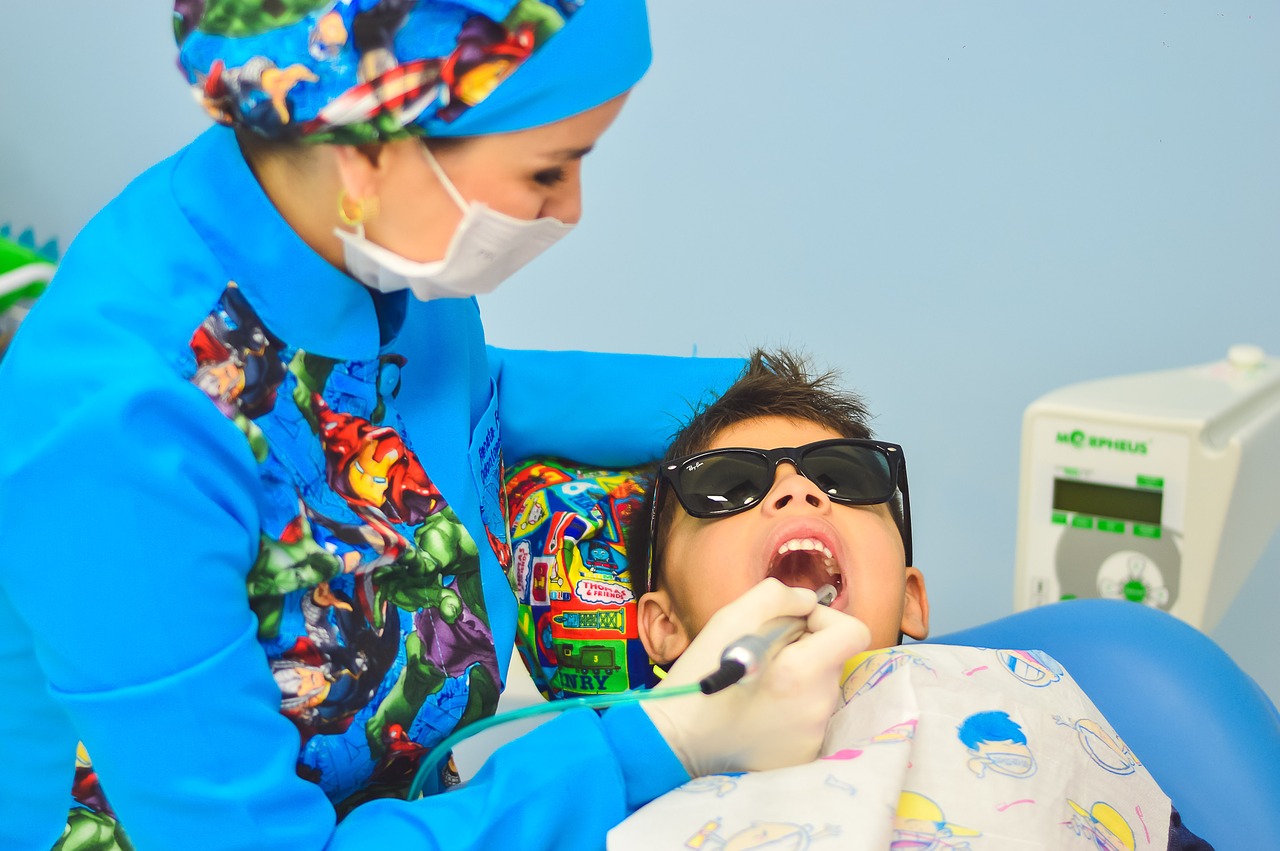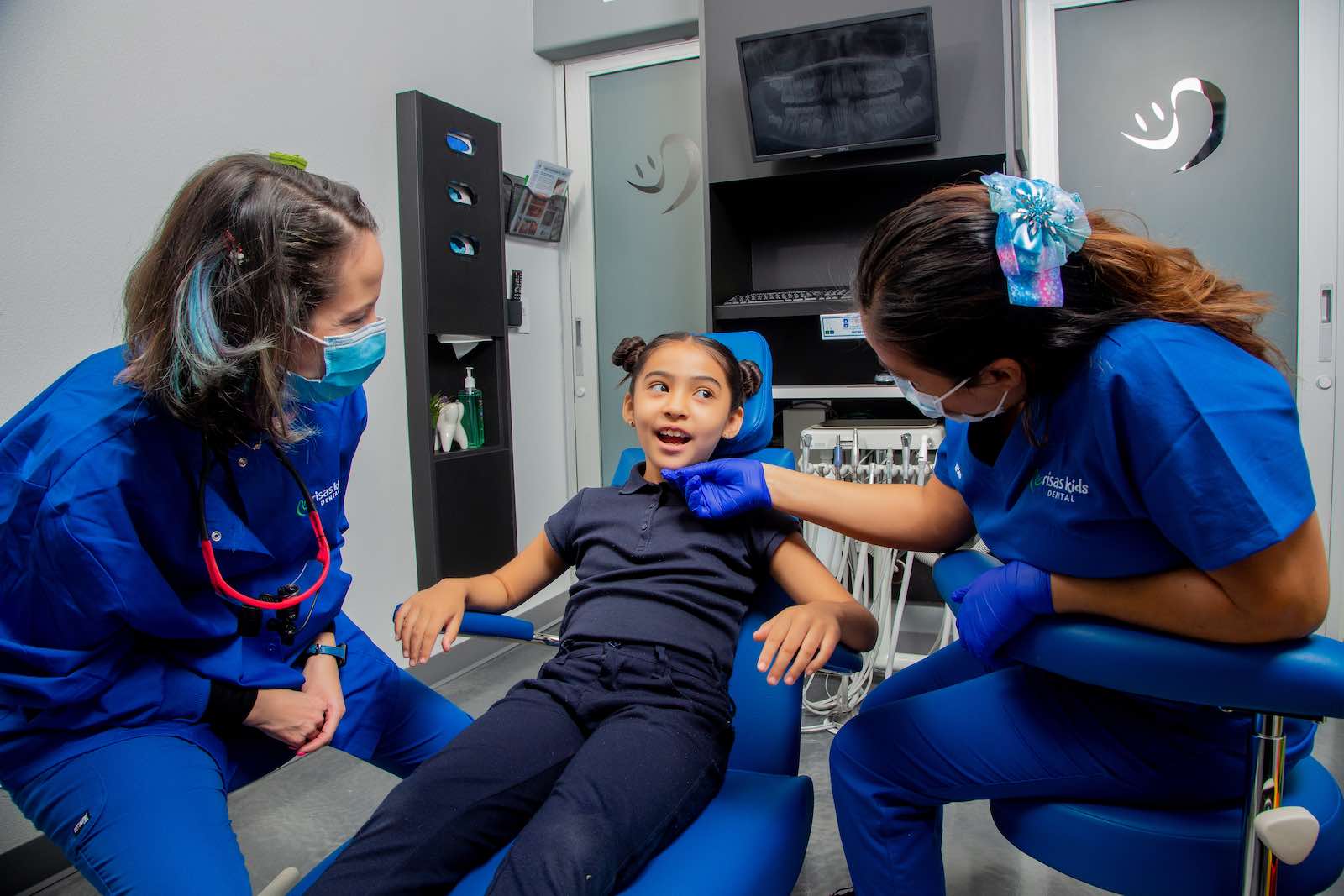Pediatric Dentist: Specialized Take Care Of Your Kid's Dental Health and wellness
Pediatric Dentist: Specialized Take Care Of Your Kid's Dental Health and wellness
Blog Article
A Comprehensive Overview to Pediatric Dental Treatment and Its Function in Stopping Common Oral Problems
Understanding pediatric oral treatment is essential for developing a foundation of lifelong dental health and wellness in kids. Early oral sees, appropriate oral health techniques, and nutritional recognition are crucial components that can substantially mitigate the risk of usual dental troubles such as tooth cavities and malocclusion. By outfitting both caregivers and kids with the essential knowledge and abilities, we can promote healthy and balanced routines that advertise anxiety-free dental experiences. Yet, the concern stays: how can these approaches be effectively applied to make sure long-term results?
Significance of Very Early Oral Check Outs
Identifying the significance of very early oral brows through can establish the structure for a kid's long-lasting oral health and wellness. Establishing a connection with a pediatric dental practitioner as very early as the eruption of the first tooth, normally around six months of age, is important. These initial sees not only acquaint children with the oral atmosphere yet also enable very early detection of prospective problems, such as imbalance or cavities.
Very early oral exams equip caregivers with useful expertise relating to proper dental treatment, nutritional suggestions, and the avoidance of dental diseases. Pediatric dentists are experienced in dealing with the distinct requirements of youngsters, ensuring that they obtain age-appropriate education and learning on dental hygiene. Furthermore, these visits provide an opportunity to go over routines such as thumb-sucking and pacifier use, which can influence oral growth.
Essential Oral Hygiene Practices
Establishing a solid structure for a youngster's oral health exceeds regular dental visits; it also entails instilling effective dental health techniques from a very early age. Parents and caregivers play an essential function in teaching children correct strategies to maintain their dental wellness.

Flossing ought to start when 2 teeth touch, as this protects against plaque buildup in hard-to-reach locations. Parents should aid their kids with cleaning and flossing till they are concerning seven or 8 years old to guarantee thoroughness.
In addition, establishing regular oral exams every 6 months enables for specialist monitoring of oral health and wellness. Teaching youngsters the relevance of dental hygiene and making it a fun, engaging task can cultivate lifelong healthy practices that are important in avoiding common oral issues.

Function of Nourishment in Dental Wellness
Nourishment plays a pivotal function in preserving optimum dental health, as the foods children eat can considerably influence the advancement and stamina of their teeth. A healthy diet abundant in important vitamins and minerals is crucial for constructing solid enamel and sustaining total dental health (kid dentist near me). Secret nutrients, such as vitamin, phosphorus, and calcium D, are vital for the development of healthy teeth and bones. Foods like milk products, leafy greens, and fortified cereals can go to the website boost calcium and phosphorus levels, while direct exposure to sunlight or nutritional sources of vitamin D can enhance calcium absorption.
Conversely, a diet plan high in acids and sugars can result in harmful impacts on oral health. Sweet snacks and beverages can promote the growth of damaging bacteria in the mouth, bring about enhanced level of acidity and a higher danger of dental cavity. It is necessary for caretakers to urge healthier snack options, such as fruits, vegetables, and entire grains, which not just offer needed nutrients however also advertise saliva production, additional safeguarding teeth.
Typical Oral Troubles in Kid
Oral health issues are an usual issue for several moms and dads, as youngsters can experience a range of troubles that may affect their oral well-being. One common concern is oral caries, or tooth cavities, which arise from the demineralization of tooth enamel due to acid-producing germs. This condition is often intensified by bad dietary routines, such as frequent consumption of sugary snacks and beverages.
An additional common problem is malocclusion, where teeth are misaligned, go to the website leading to troubles in attacking, chewing, and talking. Furthermore, gingivitis, a very early type of gum disease, can occur in children, frequently due to insufficient oral health methods.
Tooth injuries, including fractures or avulsions, are also constant amongst active kids. These can arise from falls, sporting activities, or mishaps. Early recognition and intervention are essential in managing these issues to stop more difficulties. Regular oral exams play an important role check here in detecting and addressing these usual dental problems efficiently.
Building Lifelong Dental Routines
Instilling good oral hygiene practices early in life sets the structure for a lifetime of healthy and balanced teeth and periodontals. Developing a consistent regimen for brushing and flossing is important; kids need to comb their teeth two times a day with fluoride tooth paste and begin flossing as quickly as 2 nearby teeth touch. Parents play a crucial role in modeling these habits, as youngsters commonly copy adult techniques.
Informing youngsters concerning the significance of dental care can further strengthen these practices. Usage engaging approaches, such as tales or interactive games, to assist them comprehend why normal dental check outs and proper hygiene are vital. Furthermore, introducing a balanced diet plan reduced in sugar can considerably minimize the threat of cavities and promote oral health.
Routine oral check-ups, usually recommended every 6 months, give a chance for professional support and early discovery of possible problems. These check outs can additionally help children construct a favorable organization with dental treatment. By cultivating these behaviors and attitudes from a young age, moms and dads can encourage their kids to take duty for their oral health and wellness, ultimately bring about a life time of certain smiles and lessened oral troubles.
Verdict

Early dental visits, correct dental hygiene techniques, and dietary understanding are crucial elements that can dramatically alleviate the threat of usual oral issues such as dental caries and malocclusion.Very early oral check-ups empower caregivers with valuable expertise pertaining to proper dental treatment, dietary referrals, and the prevention of dental conditions. Routine dental exams play a crucial duty in spotting and dealing with these common dental concerns properly.
Early oral check outs, along with the execution of efficient dental hygiene practices and appropriate nutrition, substantially add to the prevention of common oral troubles such as tooth cavities and gingivitis. By instilling positive oral routines from a very early age, youngsters are much more likely to experience healthy and balanced teeth and periodontals throughout their lives, eventually fostering a culture of dental health that can be sustained into the adult years.
Report this page